Natural Home Remedies To Ease Appendicitis Pain
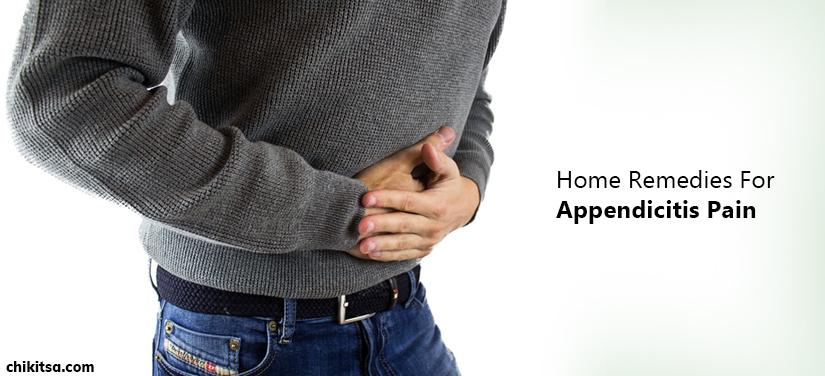
The appendix is a vestigial organ in the human body which means-as human beings have evolved over a period of several years, the appendix has ceased to develop and is useless for the purpose since it serves no purpose to the human body.
Although the appendix is called a vestigial organ, it has the following functions;
- The submucosa layer of the appendix is rich in lymphoid follicles which help in maturation of B-lymphocytes (a type of white blood cells)
- The lymphoid tissues also help in the formation of globulin which is required for transport of hormones, enzymes and also binds to other blood constituents.
This article will help you understand everything about appendicitis in detail, natural home remedies for appendicitis pain, possible appendicitis treatment without surgery and when to see a doctor for appendicitis pain.
What is appendicitis?
Inflammation or infection of the appendix is called appendicitis. Appendicitis can be of the following four types depending on its occurrence
- Acute appendicitis – Sudden onset of signs and symptoms of appendicitis
- Recurrent appendicitis - Recurrent attacks of acute appendicitis. The incidence of recurrent appendicitis is fairly low.
- Chronic appendicitis – Signs and symptoms of appendicitis lasting longer than three months
Appendicitis is the commonest acute surgical condition of the abdomen encountered by clinicians. The incidence of appendicitis is about 11 per 10000 people annually. It can occur at any age group but is found commonly in the age group of 20-30 years. It is also seen more frequently in males than in females.
Causes Of Appendicitis Pain
1. Obstruction
Obstruction of the lumen of the appendix by threadworms, pinworms, vegetables, seeds, fruits and dissipated fecal matter. Narrowing of the wall may also occur as a result of adhesions or cancer.
2. Diet
A diet lacking dietary fibers and cellulose is one of the possible causes of appendicitis. People who consume meat regularly and less of fiber are at high risk for developing appendicitis.
3. Socio-Economic Status
Several studies have proven appendicitis to be common among people belonging to middle or higher classes of the society as compared to the socio-economically backward ones.
4. Non-Obstructive Causes
Inflammation of the appendix due to bacteria that reside within the intestine such as E.coli, Proteas, Pseudomonas, Klebsiella, Enterococci and so on. The infection of the appendix could be due to bacteria or viruses and seems to be a more common cause of appendicitis as compared to the obstructive causes.
Signs And Symptoms Of Appendicitis
1. Pain
Pain is the commonest and the first symptom in every case of appendicitis. The pain is felt mainly in the region of the stomach and belly. Some patients may also report pain in the right lower region of the abdomen. Intermittent cramping may also be present along with pain.
2. Anorexia
Anorexia, nausea, and vomiting are seen in most of the patients with appendicitis. In about 95% of patients, anorexia is the first symptom followed by abdominal pain, nausea, and vomiting.
3. Fever
Mild elevation of temperature up to 99-100 degrees Fahrenheit due to inflammation of the appendix. Body temperature may rise beyond 40 degrees Celsius in case of a ruptured appendix.
4. Abdominal Tenderness
Abdominal Tenderness can be observed when the abdomen overlying the appendix is examined.
5. Constipation
Constipation is present before abdominal pain. This symptom, however, is not seen in all cases of appendicitis.
Some Of The Complications Of Untreated Appendicitis Include
- Rupture of the inflamed appendix which results in peritonitis and death in several cases.
- Formation of appendicular mass when the appendix is sealed by the surrounding portions of the small intestine. This results in the formation of a palpable mass in the right lower part of the abdomen.
- Perforated Appendicitis – This occurs in about 8-10% of cases, particularly in children or elderly people. This complication is a surgical emergency that may also cause the death of patients.
- Appendicular Abscess – Untreated or poorly managed case of appendicitis can result in the development of an abscess in the appendix which needs to be drained immediately. Diagnosis can be made by a relevant history of appendicitis along with high-grade fever and rigors, pain and swelling in the right lower portion of the abdomen.
Home Remedies For Appendicitis Pain
Surgical removal of the appendix is generally advised in all cases of appendicitis keeping its complications in view, the following are some home remedies which may help to relieve the pain of appendicitis
1. Fenugreek
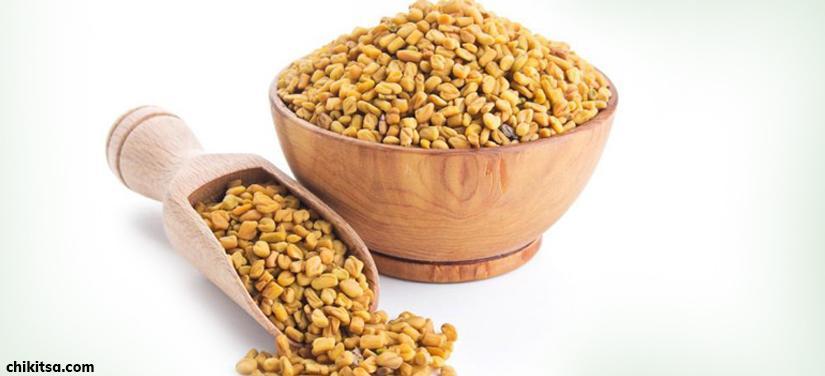
Fenugreek also commonly known as methi seeds in India, is known to prevent appendicitis inflammation and pus formation. It also works beneficially to aid digestion and prevent the occurrence of appendicitis or other gastro-intestinal tract troubles. Methi seeds can be boiled. Then strained into a cup and can be consumed two times a day for relief from pain.
2. Vegetable juices
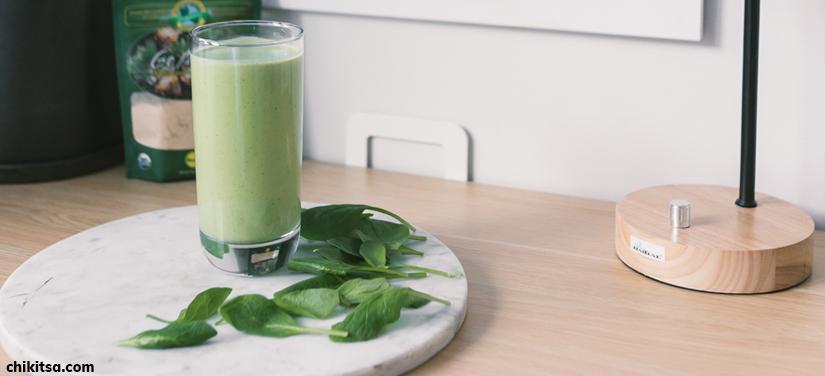
Freshly prepared vegetable juices such as carrot, radish, beetroot, and spinach contain a variety of flavonoids and antioxidants which help to flush out free radicals from the blood. This, in turn, relieves appendicitis pain.
3. Mint
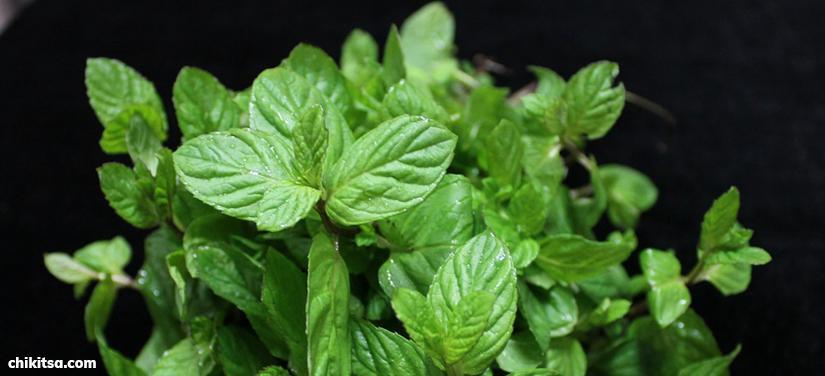
Mint also called mentha leaves or pudina in Hindi gives immediate relief from gastrointestinal troubles associated with appendicitis such as pain, cramping, nausea, vomiting and bloating. Mint leaves can either be chewed or boiled in water or in the form of tea. This boiled water or mint tea can be consumed 1-2 times per day.
[Also Read: Benefits Of Mint Leaves For Skin]
4. Ginger
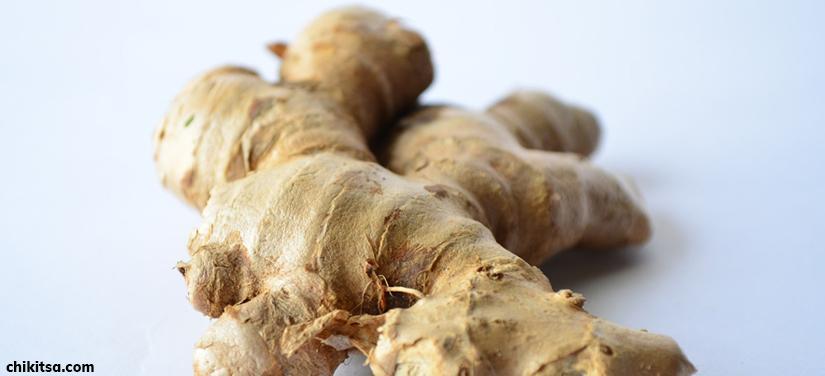
The active principles present in ginger work as antioxidants and anti-inflammatory agents. Ginger also aids in relieving nausea, vomiting and bloating. Fresh ginger slices can be chewed or tea can be made out of fresh ginger and consumed at least two times a day.
5. Turmeric
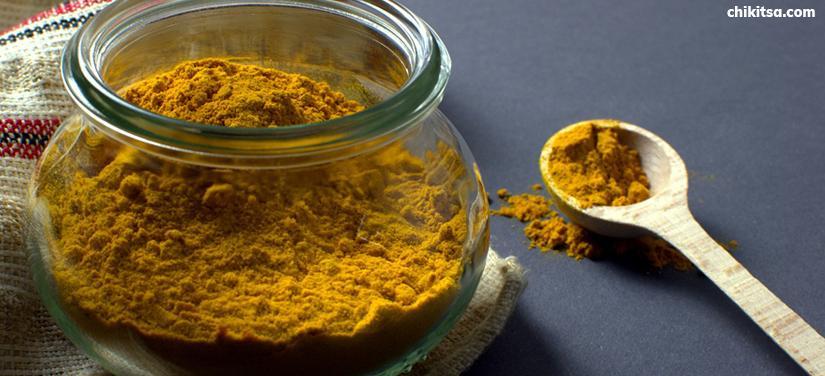
This is an age-old home remedy used to treat any sort of infection. Warm turmeric milk can be consumed once or twice a day as it has anti-infective properties.
There are several home remedies for appendicitis pain, yet, it is important to understand that none of these are meant to replace conventional medicines for appendicitis.
Also, it is equally important to consult your doctor before taking these home remedies for appendicitis pain since there is a possibility of these interfering with the action of prescription medicines.
The home remedies to appendicitis pain help to alleviate the pain and complaints. Yet, it is important to see the doctor if you have;
- Severe agonizing and disabling pain
- Fever greater than 100 degrees Fahrenheit not responding to medications
- Severe diarrhea or vomiting, since they can cause dehydration and shock
- If you notice bleeding while vomiting or passing motions
- If you notice redness or any form of discoloration on the abdomen
- If the patient having appendicitis is a child
- If the patient having appendicitis is a pregnant or lactating woman
- If the patient is an elderly person with or without a history of pre-existing illnesses such as diabetes, hypertension, dyslipidemia.
Diet Tips For Appendicitis
- People who want to prevent appendicitis need to include sufficient dietary fiber in their foods such as fresh fruits or vegetable salads, oatmeal, whole grains, and dried fruits and nuts.
- Include probiotics in food such as curd and buttermilk. These foods help to keep the intestinal bacteria in a healthy state so that they don’t deplete or cause infection.
- One of the major causes of appendicitis is obstruction due to worms. It is important to get yourself de-wormed timely by consulting your doctor in order to prevent appendicitis.
- Chronic constipation can lead to the formation of fecaliths (fecal stones) within the intestine. Lodging of these fecaliths in the appendix can trigger appendicitis. It is therefore important to treat constipation by having a sufficient amount of water and dietary fiber throughout the day.









